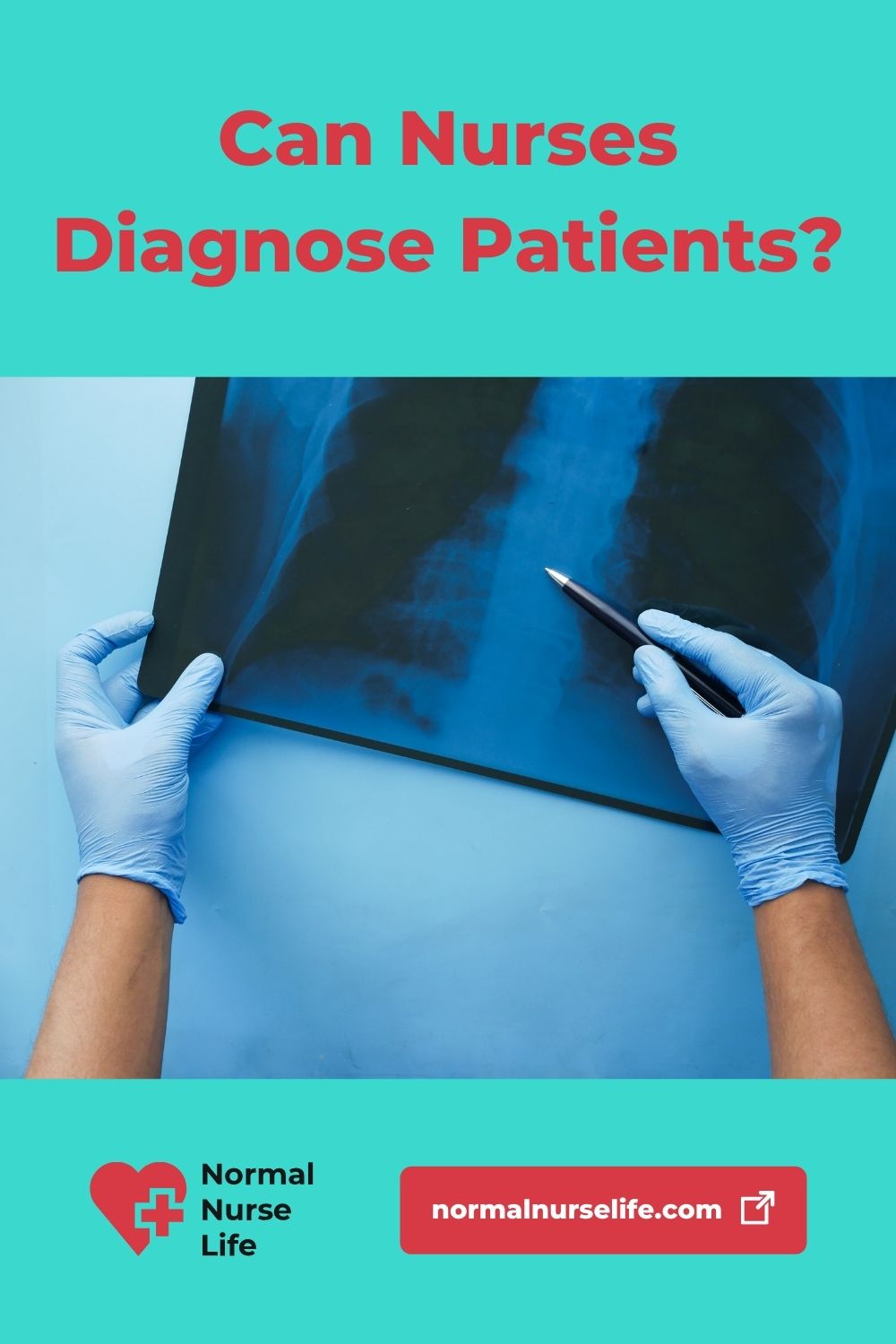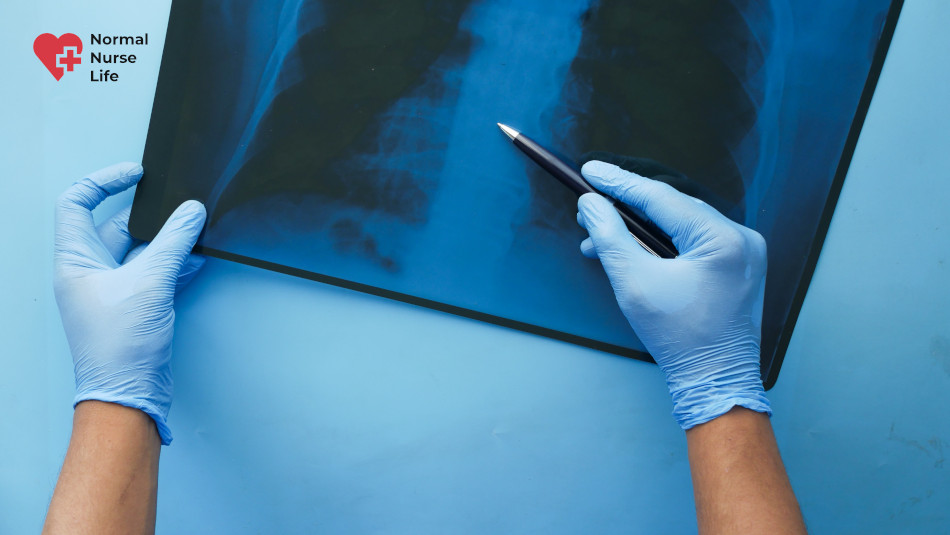When choosing your career path in the medical field, you must familiarize yourself with the similarities and differences between different medical career jobs.
For instance, as a nurse, you will have to know the scope and limits of your job position so that you won’t violate any of the policies and procedures your institution mandates.
So, you might be asking, who has the ability to give diagnoses to patients?
Of course, a medical diagnosis can be administered by medical doctors.
Can a nurse diagnose a patient?
A nurse practitioner can also diagnose conditions, whereas a registered nurse cannot do so and can only conduct nursing diagnosis statements.
To learn more about which medical professions can give diagnoses, read this article to know more about the differences.
Pin me on Pinterest!

Table of Contents
Can registered nurses diagnose?
As previously mentioned above, registered nurses (RNs) cannot give a medical diagnosis to their patients.
Often confused with nurse practitioners (NPs), registered nurses can only serve nursing diagnosis statements.
Nursing diagnosis statements are statements that serve as “a clinical judgment about an individual’s responses to actual or potential health problems”.
More importantly, these clinical judgments allow patients access to better quality care. This is because such assessments can get nurses to view their patients from a holistic perspective.
There are four different types of nursing diagnosis statements, which include the following:
- Problem-focused diagnosis – Considered as a common nursing diagnosis statement, this diagnosis is made when a patient’s problem is present as the nurse makes an assessment and is also present during a nurse’s several shifts. This type of diagnosis focuses on the signs and symptoms visible from a patient.
- Risk nursing diagnosis – This type of diagnosis is done when a patient requires intervention from a nurse and a healthcare team when a real problem is soon to develop. In this diagnosis statement, a nurse will need clear clinical reasoning and nursing judgment.
- Health promotion diagnosis – This type of diagnosis focuses on a patient’s overall well-being.
- Syndrome diagnosis – These diagnoses refer to a “cluster of nursing diagnoses that occur in a pattern or can all be addressed through the same or similar nursing interventions.”
Furthermore, nursing diagnoses are great for nursing students when developing their problem-solving and critical thinking skills.
Not to be confused with a medical diagnosis, nursing diagnosis statements help a nurse come up with a detailed intervention plan that will help deal with a patient’s response to a certain medical condition.
These intervention plans involve administering medication, giving post-treatment care for patients, and the like, and are referred to as nursing care plans (NCPs).
Nursing plans can also be informal or formal plans.
Informal nursing care plans are plans or a strategy of action formulated by the registered nurse.
As for proper nursing care plans, they are either computer-generated guides or handwritten ones that contain organized information regarding patient care.
Additionally, these care plans can be standardized care plans which contain a list of a patient’s usual everyday needs.
Suppose the standardized care plan, however, does not happen to address a client’s specific care.
In that case, a nurse can make use of individualized care plans, which are specifically made to cater to a patient’s unique needs.
On the other hand, nurse practitioners are nurses that have expanded their skills and knowledge, enabling them to practice their profession at an advanced level than registered nurses can.
See also: Can a Lactation Consultant Prescribe Medication?
Nurse practitioners, unlike registered nurses, can administer and prescribe medication just like healthcare practitioners.
When necessary, registered nurses can also request a diagnostic investigation.
At a more advanced level, nurse practitioners can also manage to obtain advanced education and training so that they can specialize or sub-specialize in a specific specialty they want to within the medical industry.
See also: Do Nurses Have to Do Continuing Education?
Can a nurse diagnose hemorrhoids?
Hemorrhoids, also called piles, are “swollen, enlarged veins that form inside and outside the anus and rectum”.
These swollen veins can cause pain and discomfort and can even form rectal bleeding.
The different causes of hemorrhoids include obesity, chronic constipation or diarrhea, having a low-fiber diet, and anal infections, to name a few.
While there might be treatments that can be done at the comfort of your home that can alleviate the pain and discomfort of these symptoms, those experiencing severe symptoms are advised to seek medical help as soon as possible.
Can a nurse diagnose a patient that has hemorrhoids?
Going back to the topic of providing diagnoses to patients, nurse practitioners that specialize in gastroenterology can diagnose hemorrhoids.
After all, just like medical doctors, nurse practitioners have the ability to diagnose and treat acute conditions, request diagnostic tests, provide care for a patient, and the like.
However, depending on the severity of a patient’s hemorrhoids, it might be best to see a medical doctor instead.
As for registered nurses, they cannot give a medical diagnosis for hemorrhoids.
As previously stated, the most that registered nurses can offer to a patient are nursing care plans.
These nursing care plans are interventions that can help alleviate a patient’s response to these conditions.
Currently, there are current nursing care plans and nursing diagnoses that registered nurses can do for hemorrhoid patients suffering from impaired tissue integrity, constipation, and acute pain.
See also: Nursing Care Plan for Constipation
Again, these nursing care plans can only alleviate a hemorrhoid patient’s pain from the following conditions they experience.
They are not a substitute or proper medical diagnoses that will help them recover from their medical condition.
See also: Trauma Nurse Interview Questions
Conclusion: Can nurses diagnose patients?
A physician or a healthcare practitioner gives a medical diagnosis.
But can a nurse diagnose a patient?
The answer is that registered nurses cannot provide a diagnosis, but nurse practitioners can do so considering their extensive training and obtained education necessary for their practice.
However, registered nurses can give out nursing diagnosis statements, which primarily focus on the care given to a patient for a specific period of time.
These nursing diagnoses are made to provide a basis for choosing nursing care plans that can best aid patients with their conditions.
Always review your institution’s policies and procedures regarding admissions in order for you to comply with your job requirements, especially if you have any concerns or want more clarifications.
Related articles of ours:
- Can Nurses Be Paramedics?
- Can a Deaf Person Be a Nurse?
- Can Nurse Practitioners Diagnose?
- Can Nurses Treat Family Members?
- Can Registered Nurse Do Botox?
I’d be glad if you could give this article a star rating down below. Thank you in advance!
